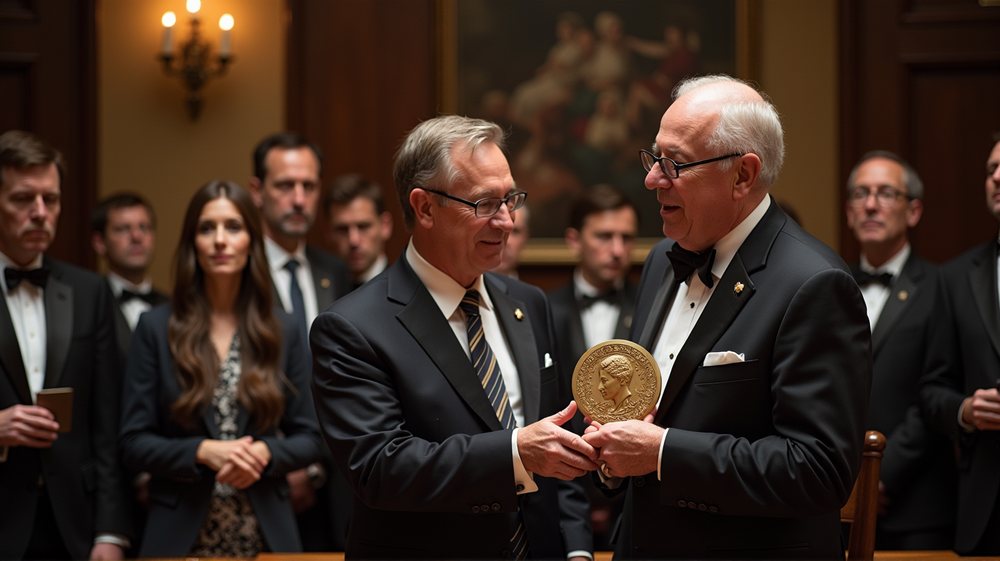Nobel Triumph: Brown's Economist Honored for Groundbreaking Work
In a wave of unexpected joy, Peter Howitt, Professor Emeritus at Brown University, has been honored with the Nobel Memorial Prize in Economic Sciences. This accolade acknowledges his extraordinary contributions to the theory of economic growth via “creative destruction,” a concept that reimagines economic progress in the modern age. According to The Brown Daily Herald, this prestigious award highlights the profound impact of Howitt’s work on the academic and economic community.
An Unforgettable Morning for Howitt
When the Royal Swedish Academy of Sciences announced the laureates early Monday, Howitt was blissfully unaware due to a drained phone battery. His discovery came through an eager reporter contacting his wife’s phone, in a scene seemingly out of a heartwarming film. “We had no champagne in the refrigerator,” Howitt admitted during a press conference, illustrating the genuine surprise felt by him and his family.
A Legacy of Innovation
Howitt’s journey into the annals of economic history began with a 1992 paper, written alongside Philippe Aghion, where he mathematically modeled the idea of “creative destruction.” This groundbreaking concept explores how waves of innovation not only boost societal progress but also present challenges to existing industries rendered obsolete by technological advancements.
The duo emphasized antitrust and competition policies as vital to fostering uninterrupted innovation. Since Howitt’s methodology, originally built on Joseph Schumpeter’s theories, is recognized globally, it’s reshaping how we perceive progress and economic stability in our rapidly evolving world.
The Balance of Innovation and Impact
Delving deeper into economic complexities, Howitt touched on the emergence of artificial intelligence as a poignant case of creative destruction. While AI promises to revolutionize labor efficiency, it concurrently threatens job stability across the globe. “This is a conflict that is going to have to be regulated,” Howitt stated, highlighting the delicate balance required to navigate these uncharted waters.
A Brown Journey Worth Noting
Aside from his Nobel-caliber insights, Howitt’s tenure at Brown since 2000 was marked by invaluable academic contributions and a nurturing, research-rich environment that he proudly praised. Reflecting on his time at Brown, Howitt cherished an “open environment” that stimulated intellectual discourse and collaboration between academia, industry, and government sectors.
Envisioning the Future
Howitt’s enthusiasm for continued cooperation among key societal sectors remains ardent. Yet, he cautioned against the risks of unchecked monopoly powers that might stifle such collaborative innovation. Echoing the global significance of his contribution, President Christina Paxson acknowledged the impact of Howitt’s work, heralding a future where economic theory catalyzes real-world transformation.
In his closing remarks, Peter Howitt espoused hope for sustained progress, underlining the role of emerging scholars and thinkers in this dynamic field. “I see dark clouds ahead,” he mused, yet his legacy offers a beacon for new waves of economic ingenuity.
The heart of Howitt’s Nobel recognition resonates far beyond the pages of his essays, charting the course for an economically vibrant future.




